Conversion skills Measurement Worksheets for Ages 7-8
5 filtered results
-
From - To
Enhance your child's understanding of measurement conversions with our tailored Conversion Skills Measurement Worksheets for ages 7-8. These engaging and interactive worksheets are designed to help young learners grasp essential skills in converting between different units of measurement. Using fun and relatable scenarios, children will practice converting lengths, weights, and volumes, building their confidence in math. Each worksheet is crafted to support classroom learning and homework, making math enjoyable and accessible. Perfect for both at-home learning and classroom activities, these resources ensure that your child develops critical thinking and problem-solving abilities while mastering measurement conversions effectively. Download and watch them excel today!
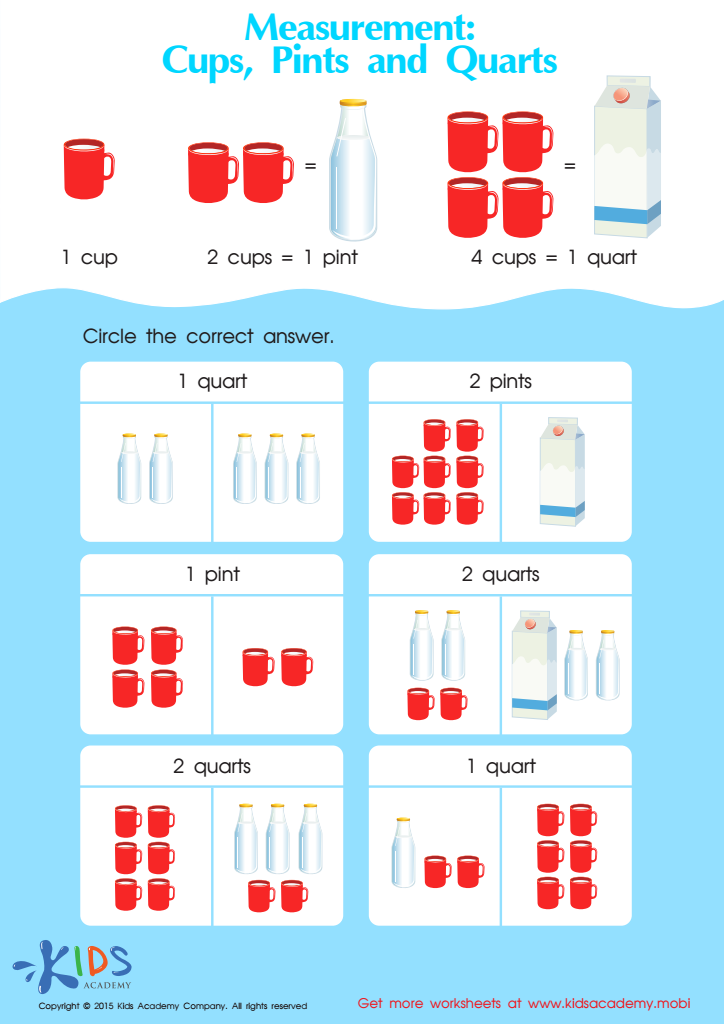

Cups, Pints and Quarts Worksheet
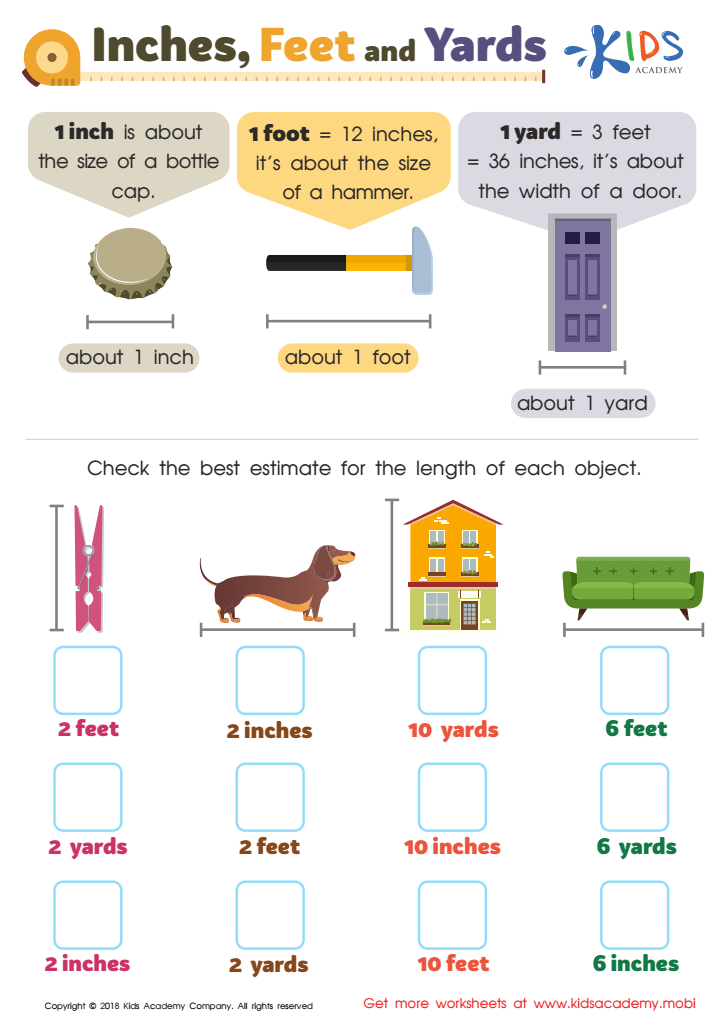

Inches, Feet and Yards Worksheet
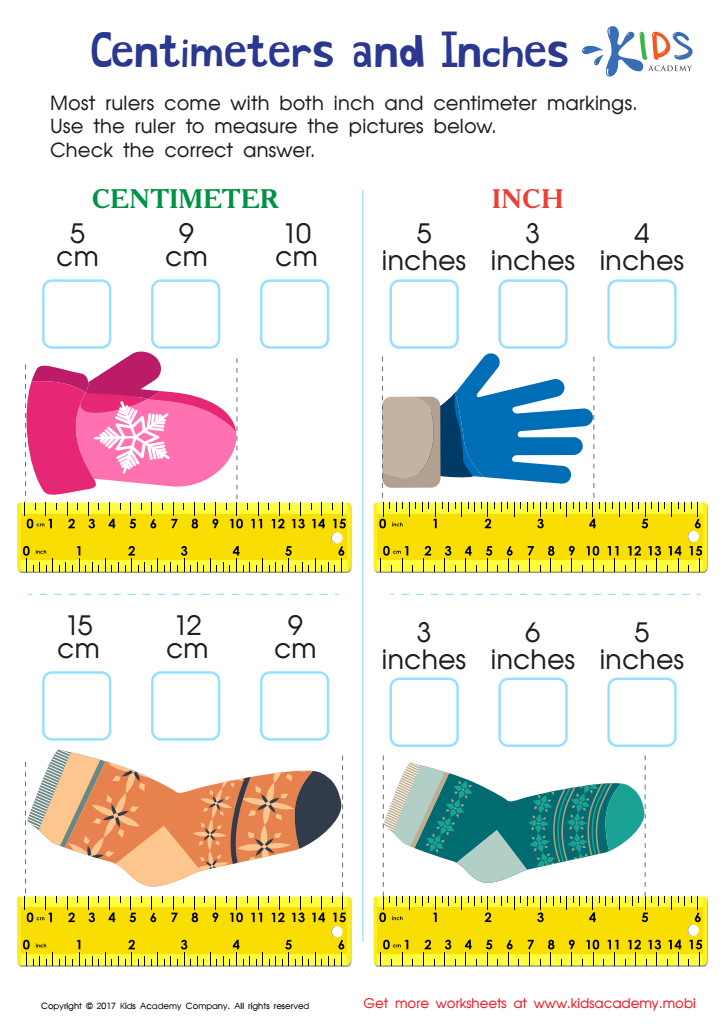

Centimeters and Inches Worksheet
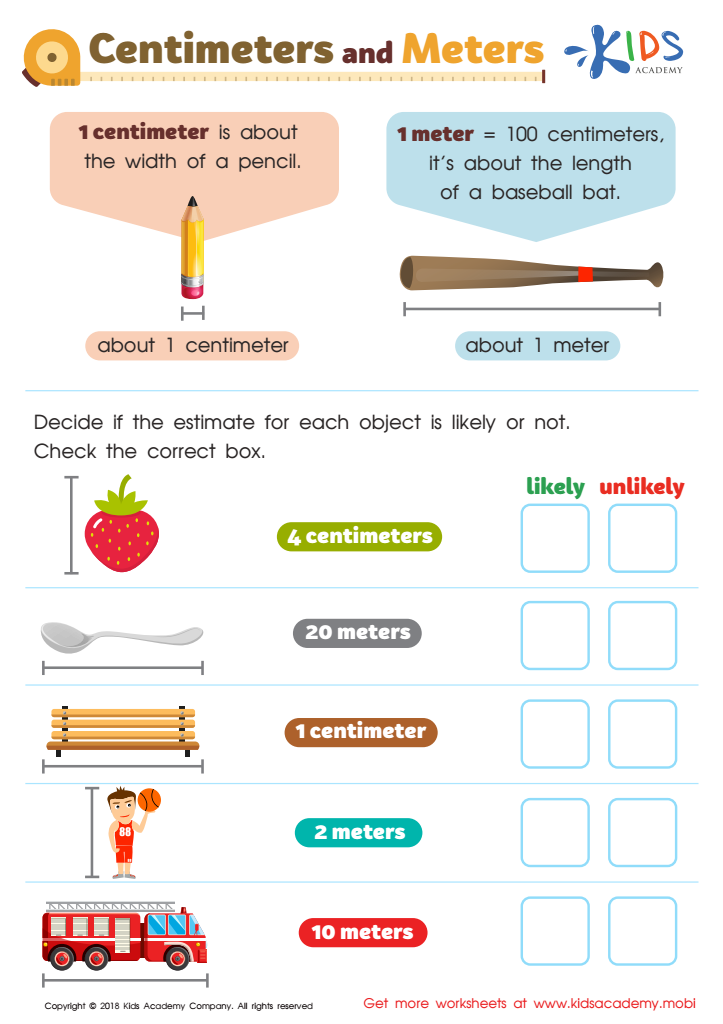

Centimeters and Meters Worksheet
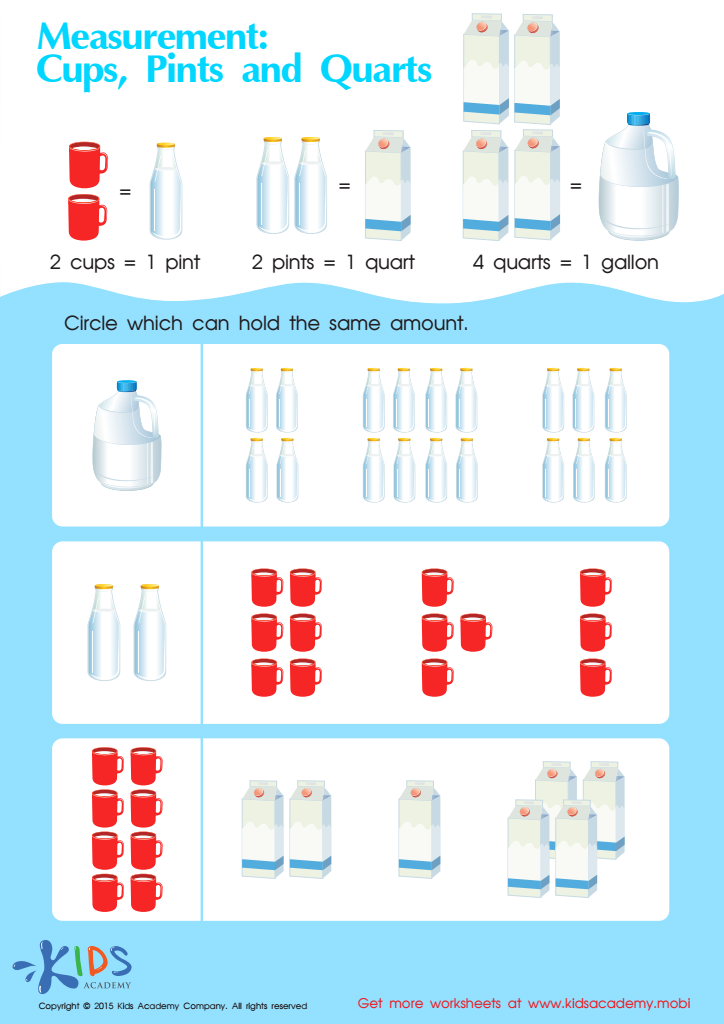

Cups, Pints and Quarts 2 Worksheet
Conversion skills measurement for ages 7-8 is crucial because it sets a foundation for mathematical understanding and critical thinking. At this developmental stage, children begin transitioning from basic arithmetic to more complex concepts. Understanding conversion skills—such as converting between different units of measurement (length, weight, capacity)—enhances their ability to solve practical and abstract problems.
Parents and teachers should care about this skill because it fosters conceptual clarity and enhances students’ confidence in math. As children learn to relate different measurements, they develop analytical skills that are essential for everyday decisions, from cooking recipes to understanding time management. Well-measured conversion abilities contribute to a child’s academic success, not just in mathematics but in integrated subjects like science and literacy, where comprehension of data and measurements is necessary.
Moreover, tracking progress in these skills allows for early identification of potential learning gaps, which can be addressed before they widen. Fostering these skills aligns with educational standards and encourages a growth mindset. Ultimately, emphasis on conversion skills at this age prepares children for more advanced topics, encouraging lifelong learning and problem-solving abilities necessary for future academic and real-world challenges.
 Assign to My Students
Assign to My Students






















